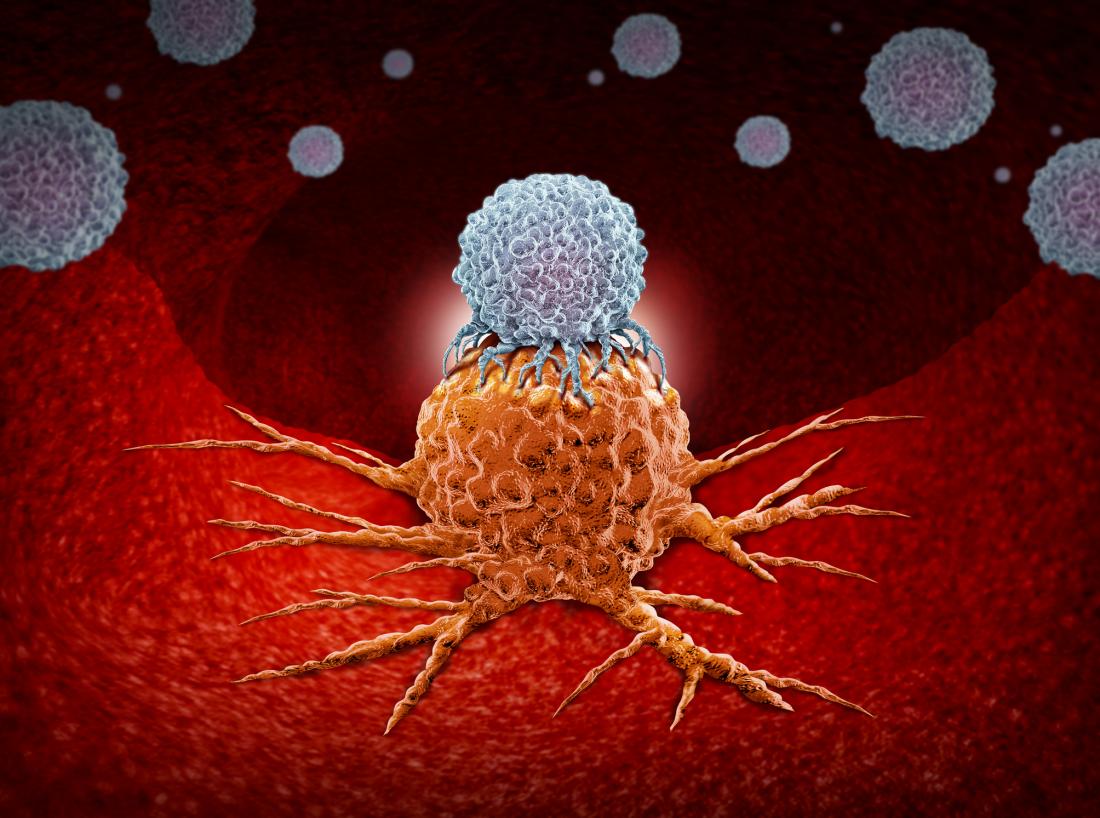Immunotherapy: 'Killer' cells get boost in fight against cancer

Recent research may have just revealed a way to make a highly successful form of immunotherapy available to thousands of people with cancer.
In the wake of the Nobel Prize in Physiology of Medicine being awarded to James P. Allison and Tasuku Honjo for their pioneering work in immunotherapy, new findings could make the treatment even more potent in the fight against cancer.
Research that was led by Dr. Alicja Copik, from the University of Central Florida College of Medicine in Orlando, may have found a way to enhance a form of immunotherapy and potentially make it available, in the near future, to thousands of people living with cancer.
Recent advances in anticancer immunotherapy have brought much-needed hope for tackling many treatment-resistant cancers.
A new cancer vaccine, for instance, was proven to be 100 percent effective in mice when added to existing forms of immunotherapy, while another one has harnessed the human immune system against cancer, showing early promise in a clinical trial.
Currently, however, some immunotherapies will only work for a few hundred people whose tumors have a molecule called PDL1. In fact, Dr. Copik and her colleagues mention in their paper that approximately 15 percent of people with cancer respond to this treatment.
So, the scientists set out to boost the expression of this molecule, making cancer more vulnerable to immunotherapy.
They revealed that expression of this molecule is boosted by a cytokine, which is a type of protein secreted by the body's immune cells called natural killer (NK) cells. So, the scientists continued to investigate ways in which the power of these NK cells can be increased.
The scientists detailed their findings in the journal OncoImmunology. Jeremiah L. Oyer is the first author of the paper.
A combined approach increased survival
In older research, Dr. Copik has used nanoparticles to invigorate these NK cells. In their new study, however, she and her colleagues show that NK cells boosted with nanoparticles called PM21 particles can alter the molecular expression of tumors.
As Dr. Copik explains, PDL1 protein molecules are used by cancer cells as a form of disguise that's meant to trick the immune system into ignoring them. By putting PDL1 proteins on their surface, cancer cells "tell" the immune system "I'm one of your own cells, so don't eat me," she says.
However, by blocking the PDL1 protection, "anti-PD-L1 immunotherapy" has been highly successful — even when the cancer had spread and reached stage 4 metastasis.
In the new study, Dr. Copik and her team used a mouse model of aggressive metastasized ovarian cancer. They found that nanoparticle-boosted NK cells force cancer cells to produce PDL1. This, in turn, made the anti-PD-L1 drugs effective.
Such a combined approach "slowed down tumor growth [...] and significantly improved animal survival over the untreated group," report the researchers.
The "inclusion of anti-PD-L1 treatment with adoptive NK cell therapy should improve its efficacy and unleash the full potential of NK cells," explain the authors, adding:
"Immunotherapy combinations, such as described here with a cell therapy and a targeted monoclonal antibody are likely to play a significant role in advancing clinical innovation in the near future."
"[T]hese activated NK cells will work synergistically with these immunotherapies," Dr. Copik reports, going on to cite previous research that showed that once they have penetrated the tumors, NK cells can enlist the help of other immune cells in the fight against cancer.
She is hopeful that NK cells will soon be used more widely to treat cancer, as this immunotherapy has far fewer side effects than either chemotherapy or radiation, since NK cells do not destroy healthy cells.
"As a scientist," she says, "it's important to know from physicians and patients, 'Where are the gaps in treatment? Where are the challenges?' You see where we should be directing our efforts."
"And when you're in the lab late at night you think about these patients. They are your motivation and your inspiration. You know we must do this work now because patients are waiting."
